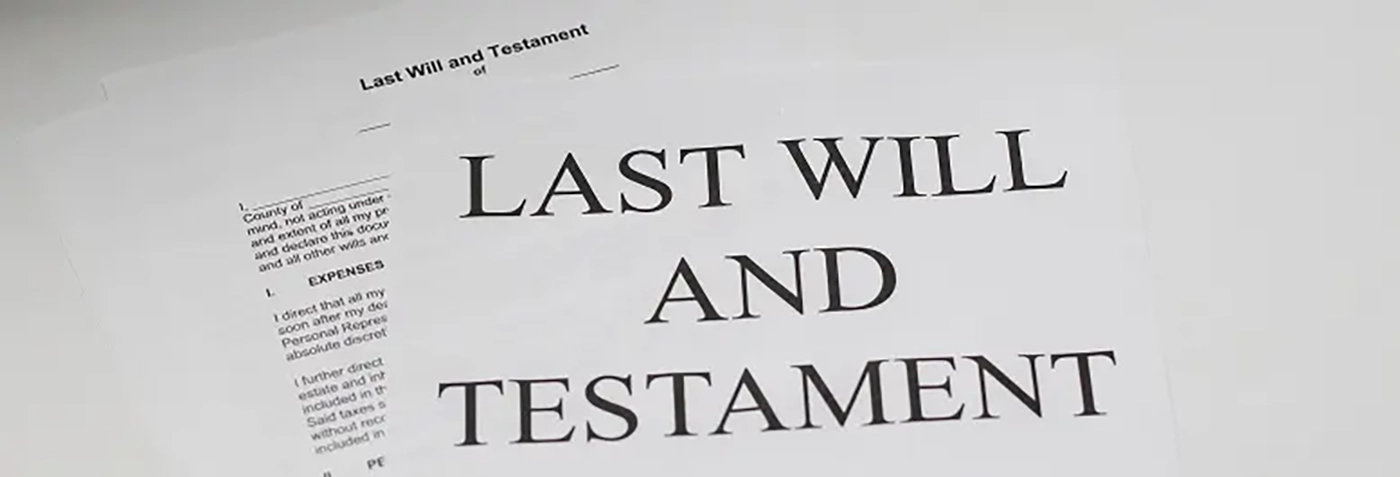Category: Probate
-

You Can Quitclaim Your Home to a Loved One to Skip Probate Costs. Is It Worth It?
A quitclaim deed easily, quickly transfers your home’s title. You can use a quitclaim to give a home to someone else, with no expectation of a payment from the recipient. Some people use quitclaims to pass homes to their family members. So, is this a good way to carry out your wishes yourself — a…
-
When in Delaware… A Homeowner’s Deed Must Be Filed With the Register of Wills
What happens with Delaware real estate deeds when someone dies? The home’s title (whether the owner dies with or without a will) vests immediately in the beneficiaries’ names. The home county’s Register of Wills sends the deed to the County Assessment Office. That’s how a title is transferred upon death. There’s no need for a…
-

Best Way to Inherit a Home in Probate: Executor’s Deed, Administrator’s Deed, or Quitclaim?
If you inherit a home, what deed will you get? It all depends on the estate planning done by the late homeowner. If you’re willed the home, it’s likely an executor’s deed. If the late homeowner died without a will, you’ll likely get an administrator’s deed. If you’re receiving your interest from another heir, it…
-
Selling a Probate Property in 6 Steps: Practical Tips for Beneficiaries
Selling a probate property is a study in patience. It’s important to let probate run its proper course. The goal of this court-supervised process is to pay the estate’s debts, and to make sure the deceased person’s chosen beneficiaries receive the value they’ve been promised through the will. The conveyance of a home receives special…
-

What Happens When Wills and Deeds Conflict?
When a person passes away, the death certificate and last will are submitted to the county probate court. A person representative begins the process of passing assets along as the will directs — except when other valid legal instruments have priority. One of those instruments is the all-important real estate deed. Houses can be left…
-
If You Inherit a House, Act. A Cautionary Tale About Putting Off Probate
Five years ago in Texas, John died, willing his house to a nephew, A.W. Today, A.W. wants to get ready to sell the house, and pay off some debt. Here’s the rub. The will never went through probate, and a different relative of John’s has been living in the home all this time. Who gets…
-
When a Spouse, Partner, or Relative Dies: What’s Next for the Home?
Homes are complicated assets. When a homeowner dies, this becomes obvious. When loved ones are experiencing grief and loss, the real estate details can border on overwhelming. If someone in your life died holding an interest in real estate, here is some general guidance. You might have some actions to take, depending on the situation.
-
Your Real Estate and Probate
When a person dies, the property owned by the deceased person—alone, or in the names of the deceased and another person without survivorship rights—finds its way to the county probate court. If the deceased person co-owned property, and the living co-owner holds a right of survivorship, probate is not an issue for the real estate. The…
-
Probate Creditors’ Rights Under Texas Law
Paying off the decedent’s debts is one of the primary duties of an estate’s executor or administrator. Failing to do this can lead to personal liability on the executor or administrator’s part. The estate’s creditors have rights under Texas probate law, but all are time-sensitive. If estate assets are limited, whether the creditor receives reimbursement…
-
Probate Process for Real Estate in Virginia
Probate is the legal process of settling a decedent’s estate and distributing his property to devisees according to the provisions of a will or to heirs at law. Probate procedures are codified at Title 64.2 of the Code of Virginia.
-
Probate and Sale of Real Property in West Virginia
Probate is the legal process of settling a decedent’s estate and distributing property to those entitled to receive it. This involves authenticating a testator’s will upon his or her death and transferring property to the named beneficiaries, or, if the decedent dies without leaving a will, determining the decedent’s legal heirs. Probate ensures that, by…
-
Transferring Real Property from a Probate Estate in Vermont
When a person dies, her debts and assets become part of her estate and are subject to a legal process called probate. “Probate” means to prove the validity of a will, but the primary objectives of probating an estate are settling the estate’s debts and distributing the remaining assets to beneficiaries according to the terms…
-
Transfers of Utah Real Property from an Estate
When a person dies, his or her assets become part of their estate. Probate is the process of settling and distributing the decedent’s estate to the people entitled to receive it. The Utah Uniform Probate Code, which sets forth the state’s rules for this process, is codified at Title 75 of the Utah Code.
-
Transfers of Probate Realty in South Carolina
Probate is the legal process of proving the validity of a testator’s will and settling his or her estate after death, including distributing property to those entitled to receive it. The procedures for probate are codified at title 62 of the South Carolina Code of Laws (South Carolina Probate Code).
-
Transferring a Decedent’s Real Property in South Dakota
What happens to your assets when you die? Depending on how your property is titled, they become part of your estate, and are subject to administration in probate. Probate is the legal process of settling a decedent’s estate and distributing assets to those designated to receive them, whether through devise by will or by laws…



